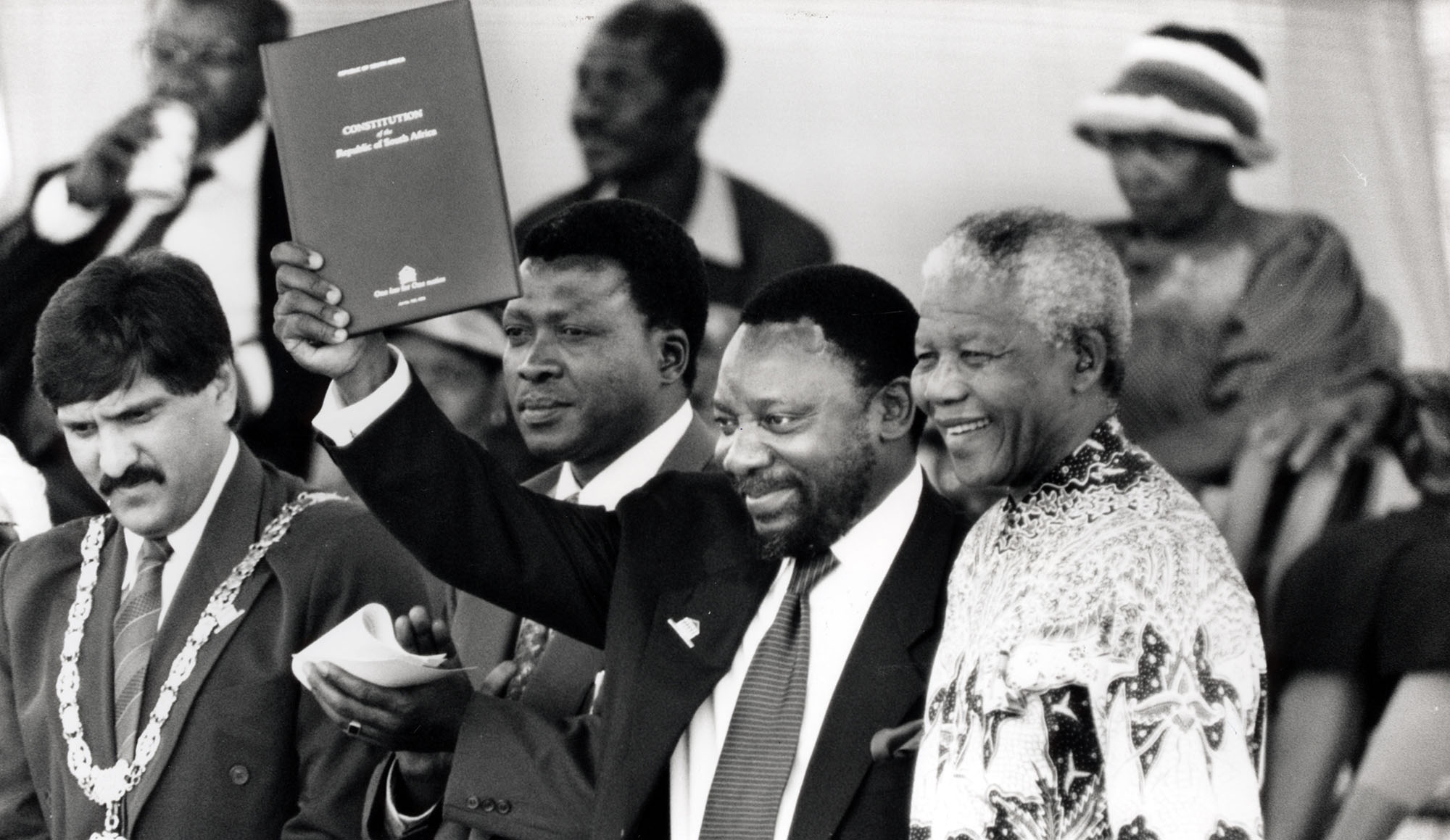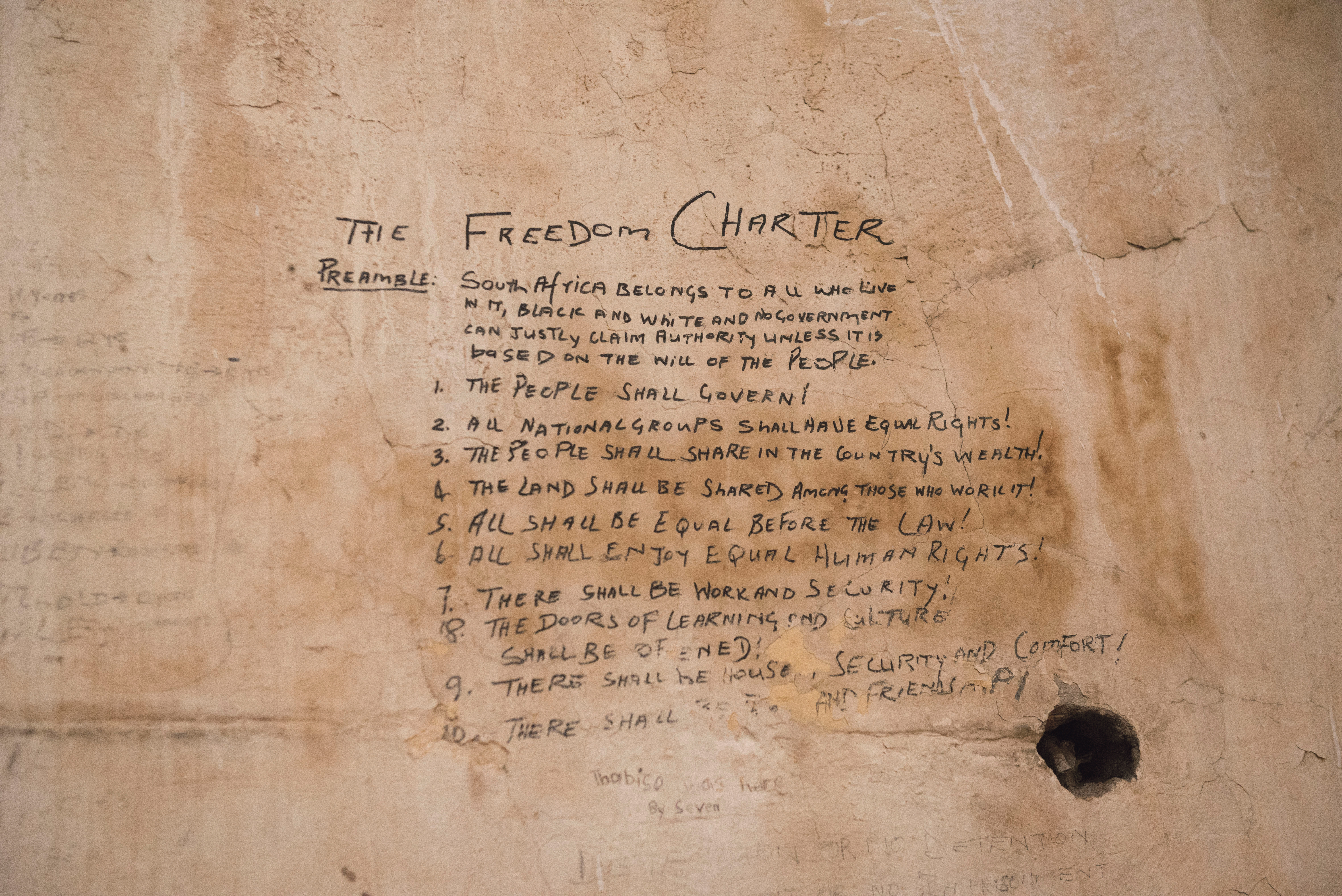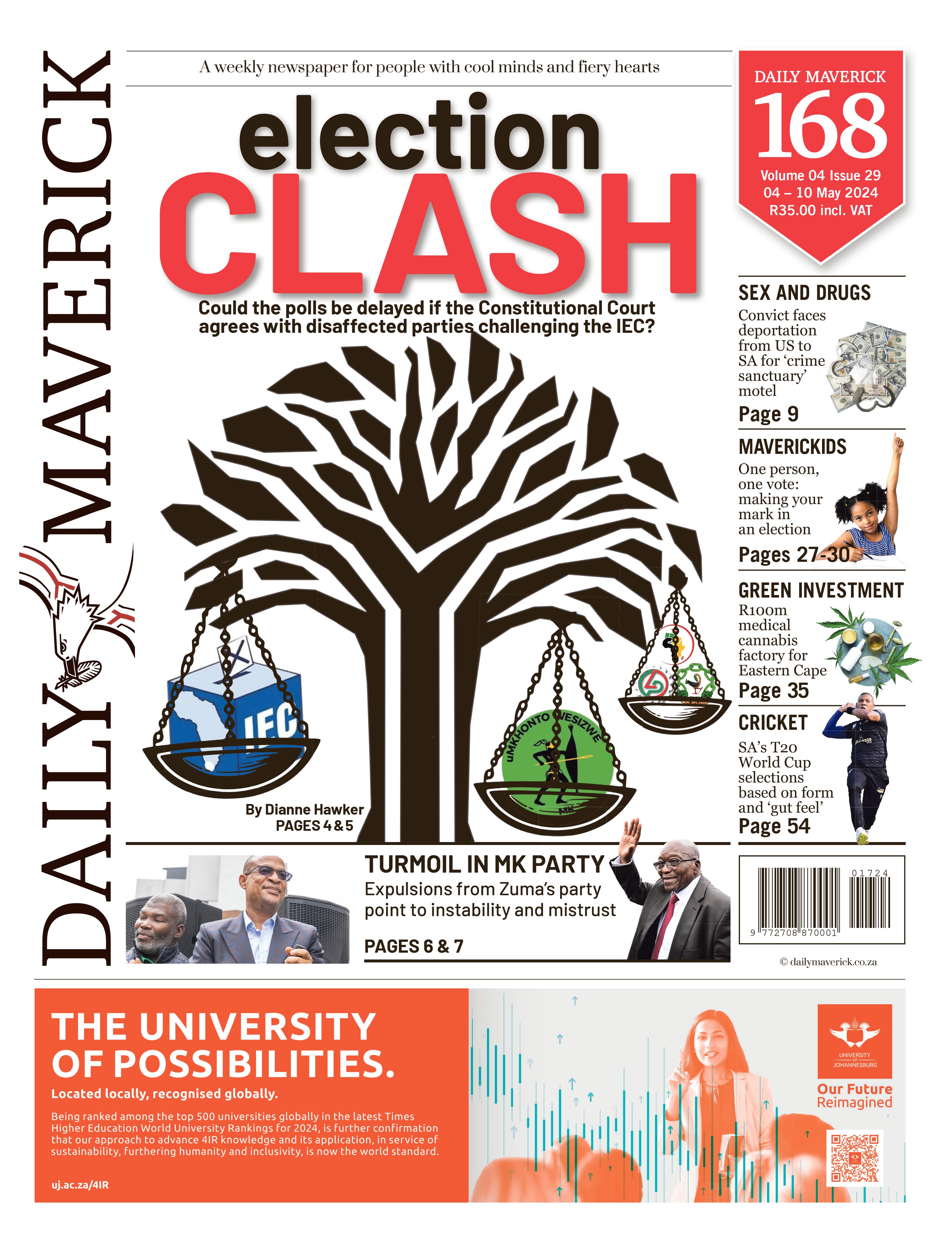The celebrations this Freedom Month of 30 years of democracy in newspaper articles, radio documentaries, podcasts and rebroadcasts of key moments in our recent history have foregrounded the strength and origin of the Constitution of South Africa.
Signed into law by Nelson Mandela in Sharpeville in 1996, it was implemented in 1997 as the bedrock of democratic, accountable South Africa.
There have been calls for some time, by the likes of soon-to-be impeached former judge president of the Western Cape John Hlophe, for South African law to be “Africanised”. There is too much reliance on Roman Dutch law, the argument goes among this group of legal thinkers.
It is an issue that also gnaws at former president Jacob Zuma’s idea of freedom. Like Hlophe and his lawyer, Barnabas Xulu, who has since had his Porsche and luxury home attached because of various transgressions of the law, Zuma would like to make up law on the trot.
In May 2021, Western Cape High Court Acting Judge Mas-udah Pangarker ordered Xulu to pay the then Department of Environmental Affairs, Forestry and Fisheries’ legal costs and also referred the judgment to the Legal Practice Council.
She said that the Constitution recognised the supremacy of the rule of law as one of the core values upon which South Africa was founded. “Civil contempt, which is at the heart of the matter, is the crime of disrespect to the court and the rule of law.”
Xulu and his firm had flouted section 165(5) of the Constitution and “acted with impunity and the utmost contempt, and it is of great concern that an attorney has conducted himself in continued wilful defiance and bad faith in the manner set out in this judgment”, she said.
In the same WhatsApp group and carping from the sidelines is legal consultant Paul Ngobeni, who advised the impeached former public protector, Busisiwe Mkhwebane, on various matters, all of which she lost in a court of law.
Ngobeni’s interpretation of “Africanisation” is that you can be a fugitive from law in the US, not be registered to practise law in South Africa and pass yourself off as a law expert. Mkhwebane is an administrator, so to speak, of this WhatsApp group.
This territory is a nebulous and undefined legal playground that advocate Dali Mpofu also enjoys conjuring in courtrooms, where he has learnt that bullshit does not baffle brains or the law.

The signing of the Constitution of the Republic of South Africa in May 1996 ushered in a new era of constitutional democracy two years after the country’s historic first democratic election and the installation of President Nelson Mandela. In this photograph, Cyril Ramaphosa and Mandela with the signed copy of the Constitution. (Photo: Gallo Images / Business Day / Robert Botha)
Oliver Tambo’s DNA
It is vital to begin dismantling this magical thinking by understanding the origins of the Constitution. Apart from what was made visible during negotiations prior to its adoption, there was the constitutional committee set up by ANC president Oliver Tambo in 1985 to explore how the Freedom Charter could be embedded in a future liberated South Africa.
André Odendaal has written in detail of this remarkable exercise in his book Dear Comrade President, which those who delegitimise the Constitution should read before engaging publicly. And, as retired Constitutional Court Justice Albie Sachs has reminded us, Tambo’s DNA is threaded through the Constitution.
Law professor Pierre de Vos has lucidly tackled Hlophe and those who support his views by pointing out that the Constitutional Court has, for some time, been “indigenising” the very foundations of Roman Dutch law in South Africa.
“For example, the Constitutional Court has relied on the Bill of Rights to begin to refashion the Roman Dutch law principles of ownership, which were used during the apartheid era to legitimate the ‘consequences of manifestly racist and partial laws and policies’, in order to strike a better balance between private property rights and the public duties of property owners.”

The Freedom Charter preamble is written on the wall at the Palace of Justice during the handing over of the digital audio recordings from the Rivonia Trial in Pretoria on 17 March 2016. (Gallo Images / Beeld / Theana Breugem)
Diamonds are forever
In a feature article on 30 years of democracy by Sunday Times legal correspondent Franny Rabkin, advocate Wim Trengove, who has argued some of the most significant matters in our courts, recalled his most memorable judgment.
This was, he said, a matter that the newly democratic state, led by an ANC government, fought hard to resist, but it was ultimately upheld by the apex court.
In 2003, the court returned land and mineral rights owned by state mining company Alexkor to a Richtersveld community that had been forcibly removed from these richest alluvial diamond fields in the country in the 1920s. The government fought the challenge in the land claims court and won, but this was later overturned by the Supreme Court of Appeal and the apex court.
Lawyers for the State had argued that the return of the land to the community would leave a R10-billion deficit in the government’s budget as well as “damage the land restitution process”.
Mbuyiseli Madlanga, now a capable Constitutional Court justice, who represented Alexkor at the time, argued that the 1847 dispossession by what was then the Cape Colony was not the result of discriminatory law or practices. He posited that laws passed later to prevent the Richtersveld community from returning to the land were “racially neutral”, had applied to everyone and were applicable to other mining areas.
Retired Justice Kate O’Regan has reminded readers that the Constitutional Court has handed down 970 judgments in the past 30 years.
The democratic South African state has survived a prolonged and sustained attack from inside and outside, protected by the rule of law and the Constitution. Those who seek to undermine it can only be doing so in order to live above and beyond the law. DM
This story first appeared in our weekly Daily Maverick 168 newspaper, which is available countrywide for R35.

















This is what happens when people look at European democracies as an african model, we have the best constitution in the world, our constitution understands the past and the present alike.
The history of the people calling for changing the constitution tells all, they have all been involved in corruption of some sort, being acquitted on a technicality does not deem a person innocent it just means not all requirements were met to guarantee a fair trial , and it is more frequent when people are appointed in law enforcement without the proper qualifications.
As an aside … it should be noted that Trump in the US is trying to do the same .. and seems to have ‘engineered’ sufficient support on their highest court bench .. to ‘overturn/reverse’ even long held ‘precedent’ setting laws. Charlatans across many parts of the globe (even where ‘democracy’ is thought to be firmly entrenched) are finding ways of undermining or circumventing the ‘law’ it seems.